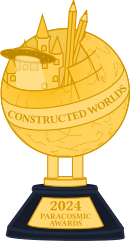Featured article
|

 Sierran Cultural Revolution Sierran Cultural Revolution | Featured event
 A rally of Tondolese Catholics in 1924. Author: Centrist16
Project: Altverse II
Country: Sierra
Dates: 1901–1955
Type: Revolution, social movement
Summary: The Sierran Cultural Revolution, also known as the Xinchou Revolution (Chinese: 辛丑革命; pinyin: Xīnchǒu gémìng), or the Revolution of 1901, was a period of social transculturation and political change spanning across three royal eras that coincided with the progressive reform movement and substantial economic growth that took place in Sierra between 1901 and 1955. The Revolution radically changed racial and social attitudes in Sierra, and led to the birth of contemporary Sierran culture (known colloquially romanticized as the New Culture), guided under the principles of Sierran humanism, and other concepts including Sierran Hanzi. The Revolution was marked with widespread legal reforms, shift in attitudes and customs, increased immigration, and violent conflict with reactionaries. By its end, it saw the abolition of the Sierran casta system and radically altered the landscape of Sierran politics and social views. The Revolution also coincided with the rise of increased militarization, increased involvement of the monarchy, and authoritarianism due to widespread fear of Bolshevism, trade unionism, nativism, and anarchism. By the mid-1920s, during a time known as the Approbatio, the government resorted to military use and speech laws to control and suppress the activities of the opposition and dissidents. Contemporary historians have claimed that this later period in King Louis I's reign coincided with elements of fascism within the Sierran government. Although labor conditions worked, unions suffered greatly during the Revolution, and were subject to intense scrutiny. The change transformed Sierra into a cosmopolitan society and shaped the modern Sierran nation-state and democracy. The late Revolution coincided with unprecedented economic growth and militarization, propelling it towards the global power status it has reached in the present-day.
Today, Sierran society regards the Revolution as the key instrument to its success and flourishing culture. The Revolution allowed Sierra to modernize and to transcend group differences, granting it the power to focus on domestic issues, and work towards national improvement. It is viewed as the raison d'être for Sierran culture and economic success. The mass enfranchisement and politicization of various groups encouraged participatory democracy and reforms in business allowed for fairer conditions for workers. In addition, the Revolution is viewed as the hallmark of modern Sierran culture and the precursor to similar social movements in other Anglo-American countries such as the American Civil Rights Movement in the United Commonwealth. Aspects of the Sierran Cultural Revolution have had a minor though noticeable effect on Sierra's neighbors, most notably in Astoria and Brazoria, which both have similarly heterogenous populations with large Asian communities. It also significant in Tondolese history, as the Revolution brought Sierra and Tondo closer culturally and politically during Sierra's imperial occupation of the Asian state. (more...)
See the complete list of featured articles here. |
About the Wiki
|
Originally founded on Wikia, the Constructed Worlds Wiki, affectionately known as Conworlds, is a place to host and share constructed worlds, alternate history, and other creative endeavours. Projects of any nature are welcome here, and creativity is encouraged!
On Mainspace articles we suggest that writers follow our Manual of Style. The majority of content on the Mainspace is written in an encyclopedic format like on Wikipedia. For all other kinds of pages, there are a number of namespaces anyone can use. Editors can opt in their pages to our content assessment system, vote to feature articles at the village pump, and even earn awards and decorations for their writing.
It is important to fully review and understand our policies and guidelines before editing on our Wiki. The Admins generally prefer to let people self-regulate, but it is for the sake of keeping Conworlds an inclusive and safe community that we insure compliance with these policies. Particularly of import are the protocols around copyrights.
Aside from our policies, it is also important that users understand the Four Cs: civility, collaboration, consensus, and cooperation.
- Civility: Editors should treat each other with courtesy, good faith, and respect.
- Collaboration: Editors should make an effort to work together on shared projects.
- Consensus: Editors should participate in decision-making and seek arrangements which are suitable to all.
- Cooperation: Editors should never wantonly antagonize or hinder others.
Finally, new editors or users should understand what Conworlds is not. This website is for free content: by editing the Constructed Worlds Wiki, you agree to license any text you add under the Creative Commons Attribution-Share Alike License 4.0 (Unported). If you have any concerns or questions, feel free to leave a message on any of the Admins' talk pages or join our community Discord chat.
Thank you for visiting and happy conworlding!
Read more about our wiki and its history here. |
|
|
From the Admins
|
The Constructed Worlds Wiki needs your help!Join the ACCTF today!
 The Attribution and Copyright Compliance Task Force (abbreviated ACCTF) is a Conworlds task force and project which aims to identify and resolve attribution issues involving the articles, templates, files, and categories of the Constructed Worlds Wiki. Due to the nature of the Constructed Worlds Wiki first and foremost as a worldbuilding community wiki that seeks to emulate the appearance and style of Wikipedia, many of its articles are based on or inspired by Wikipedia. Consequently, it may feature articles which may or may not properly attribute its Wikipedia sourced material. Material which has been copied, transposed, imported, or derived from Wikipedia (and elsewhere) which fail to have proper attribution may be in violation of Wikipedia's or other similar sites' copyrights. The Constructed Worlds Wiki administration takes this very seriously, as non-compliance or negligence may have legal ramifications. To that end, the ACCTF was created on 3 March 2023 to meet the demands and standards of proper attribution and copyright compliance with respect to Canadian copyright law. If you are interested in assisting the wiki with this important responsibility, please join the ACCTF today!
|
Paracosmic Awards
Congratulations to the winners of the 2024 Paracosmic AwardsAnd thank you to everyone who nominated and voted!
The inaugural 2024 Paracosmic Awards recognized the outstanding editors, projects, and content on the Constructed Worlds Wiki. Nominations and voting took place in January and February 2024. The 2024 Paracosmos recognized content from 2023 in addition to content from earlier years in the Lifetime Achievement categories.
Writer Awards
Project Awards
Content Awards
Lifetime Achievements
|









